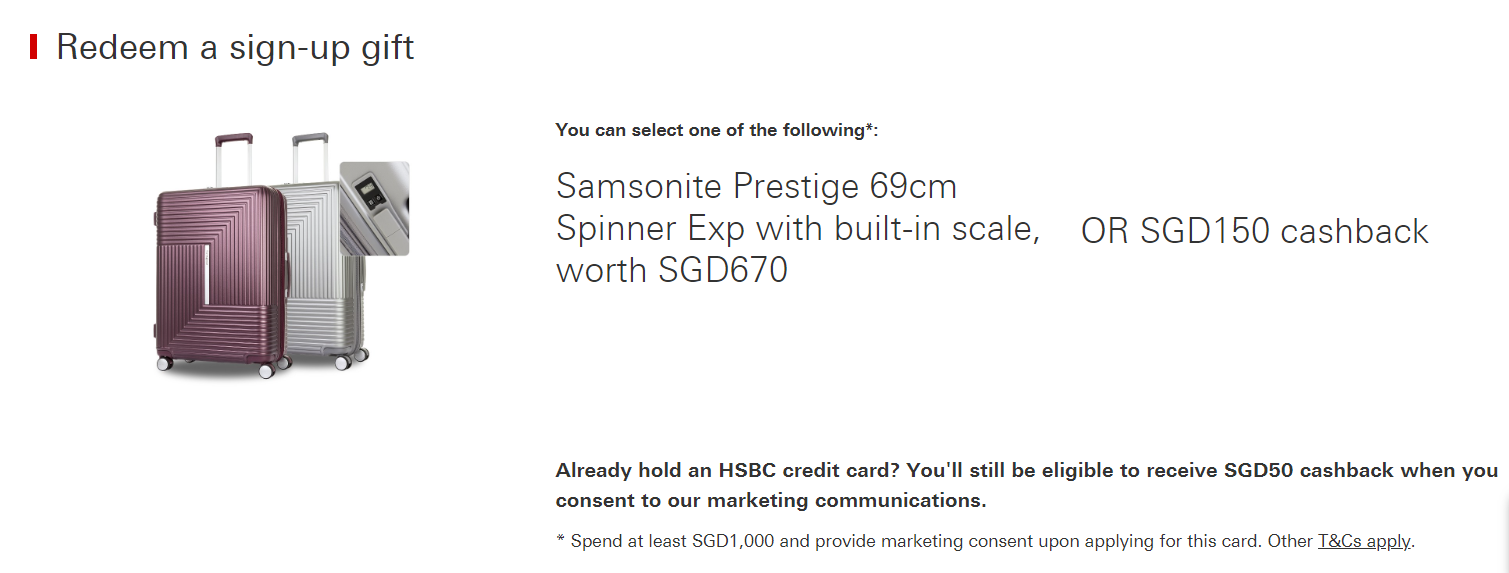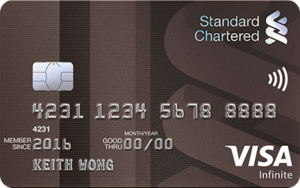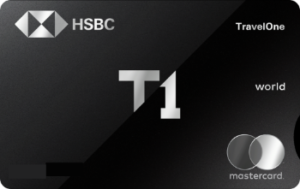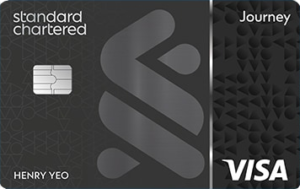If you’ve ever applied for a credit card, you’ll know that new-to-bank status is incredibly valuable. Banks reserve their best sign-up offers for this group, showering new customers with hundreds of dollars of cash or tens of thousands of miles while existing customers walk away empty handed.

In general, banks define a new customer as someone who:
- Does not currently hold a principal credit card, and
- Has not cancelled a principal credit card in the past 12 months (for OCBC and UOB, it’s the past six months, though I’d advise you to read the particular offer’s T&Cs as this can change)
An existing customer is simply anyone who does not meet the definition of a new customer.
However, HSBC does things differently. Their definitions of new and existing customers are unique, and sometimes it works in the customer’s favour- other times less so.
| ⚠️ Important Note |
|
This article applies to HSBC’s sign-up gifts for the Advance/Premier/Revolution/Visa Platinum. It does not apply to the HSBC TravelOne Card, whose 20,000 miles welcome offer makes no reference to new or existing cardholders. So long as you have not cancelled a TravelOne Card within the past 12 months, you are eligible for the TravelOne Card’s sign-up offer. The same goes for the HSBC Visa Infinite’s 35,000 miles welcome offer. |
How does HSBC define new customers?
HSBC defines a new customer as someone who:
- Does not currently hold a principal HSBC credit card (except the HSBC Visa Infinite and TravelOne Card), and
- Has not cancelled any HSBC credit card in the past 12 months (except the HSBC Visa Infinite and TravelOne Card), and
- Has not revoked consent to receive marketing or promotional materials from HSBC at the time the gift is credited
While (3) is a potential gotcha, given that HSBC is the only bank with such a requirement, its definition is otherwise more forgiving than other banks because it excludes both the HSBC Visa Infinite and HSBC TravelOne Card from consideration. In other words, if you only hold a HSBC Visa Infinite, HSBC TravelOne Card, or both, you still count as a new customer when you apply for another HSBC credit card.
Contrast this to other banks like DBS, where applying for a DBS Vantage Card would disqualify you from the new customer sign-up bonus on the DBS Altitude Card, or Citibank, where applying for a Citi Prestige Card would disqualify you from the new customer sign-up bonus on the Citi PremierMiles Card.
Likewise, cancelling a HSBC Visa Infinite or HSBC TravelOne Card within the past 12 months does not, in and of itself, disqualify you from counting as a new customer.
How does HSBC define existing customers?
HSBC defines an existing customer as someone who:
- Holds a principal HSBC credit card that was issued more than 12 months ago (except the HSBC Visa Infinite and TravelOne Card), and
- Did not cancel any principal HSBC credit card in the past 12 months (except the HSBC Visa Infinite and TravelOne Card), and
- Has not revoked consent to receive marketing or promotional materials from HSBC at the time the gift is credited
This is a lot more complicated, so let’s try to break it down.
For you to count as an existing customer, all your HSBC credit cards must have been issued more than 12 months ago. For example, if you were approved for a HSBC Advance/Premier/Revolution/Visa Platinum two months ago, you will not count as an existing customer (but note the exception for the HSBC Visa Infinite and TravelOne Card).
Moreover, existing customers must not have cancelled any HSBC credit card in the past 12 months. For example, if you cancelled a HSBC Advance/Premier/Revolution/Visa Platinum two months ago, you will not count as an existing customer.
Just like the definition of new customers, an exception is carved out for the HSBC Visa Infinite and HSBC TravelOne Card. For example, if you have held a HSBC Advance Card for more than 12 months and a HSBC TravelOne Card for 3 months, you will count as an existing customer (since the TravelOne Card is ignored).
Can I be neither new nor existing?
With all other banks, new and existing are MECE categories (mutually exclusive, collectively exhaustive). Not so with HSBC. Because of the way HSBC defines new and existing, it’s possible to fall into neither!
A couple of examples:
- If I was approved for a HSBC Advance/Premier/Revolution/Visa Platinum credit card two months ago, I will neither count as new nor existing
- If I cancelled a HSBC Advance/Premier/Revolution/Visa Platinum credit card two months ago, I will neither count as new nor existing
In such cases, I will neither be eligible for the new customer sign-up gift, nor the existing customer sign-up gift.
Why does HSBC do things this way? My guess is:
- it doesn’t want to penalise customers who signed up for premium cards like the HSBC Visa Infinite, or fee-paying cards like the HSBC TravelOne Card
- it doesn’t want to reward customers for signing up for new cards too frequently
- it doesn’t want to incentivise customers to cancel their cards too frequently
So the system is set up in a way that holding a HSBC Visa Infinite/TravelOne Card doesn’t exclude you from enjoying a sign-up bonus on other fee-waiver cards, and an existing HSBC cardholder can enjoy at most one sign-up gift per 12 months.
Conclusion
HSBC’s definitions of new and existing customers are more complex than the rest of the market. Sometimes that works in your favour, sometimes it does not.
It’s actually more beneficial for new customers, since holding the HSBC Visa Infinite or HSBC TravelOne Card doesn’t count against you, and less beneficial for existing customers, since you’re not allowed to cancel any HSBC cards in the past 12 months.
In previous articles, I’ve constantly been advocating that people sign-up for the HSBC Revolution first, then the HSBC TravelOne Card, since the latter’s sign-up offer makes no distinction between new and existing customers while the former’s does. But in light of this, that’s no longer necessary.






HSBC is making application unusually difficult or perhaps due to MAS Rules but this did not helped with HSBC very poor customer service with a take it or leave it attitude. I am an existing HSBC card holder for say 30 years. No bad credit record and everything is settled on time. My income is ad hoc and not under employment as it is my own business. They asked for 3 months income statement so I provided the annual assessment from IRAS. I called up HSBC hotline and explained to them and asked for the card application personnel to call… Read more »
Unfortunately that’s not an exception with HSBC. Long time ime premier customer, first in Hong Kong, now in Singapore as well. When relocating from Hong Kong to Singapore, it took me 4 months to get a credit card, only got ot after yelling at the staff in downtown branch. Service in HK already with ups and downs unfortunately I had to learn in SG even more disappointing what HSBC does in regards of service. Further, I wasn’t treated as new to bank, as I had several cards in HK
Seems I am not the only one and they not making an exception in my case. Just to update, I made a call and this time an agent in Malaysia call centre picked up and I give it to Ameer who was very patient and spend a lot of time talking to his colleagues to push it through. In the end, they said give CPF statements (perhaps looking at interest income generated from CPF account per year) and also past two IRAS assessments. So I submitted and waiting for their approval or non-approval. Importance of getting the right customer service… Read more »